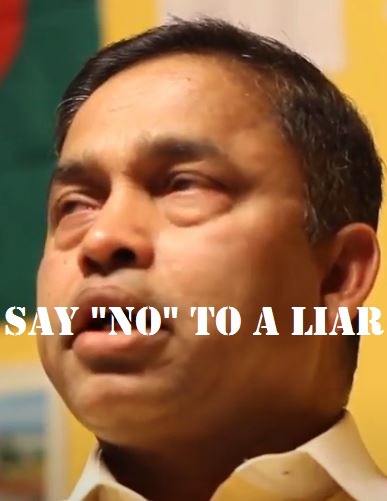Corruption, money and Malaysia's election
Mahathir Mohamad, 92, has just been sworn in as prime minister of Malaysia. It is hard to overstate what a feat this is. Led by Mr Mahathir, the political alliance called Pakatan Harapan - Alliance of Hope - swept to a stunning and unexpected victory in the polls, overturning 61 years of Barisan Nasional rule.
So how did this grandfatherly figure - who has already served as prime minister between 1981 and 2003 - turn around such a massive win? There are two main reasons - corruption and money.
You've probably heard of the 1MDB scandal, or 1 Malaysia Development Berhad as it is formally known. In a nutshell, it was a state investment fund set up by the now former Prime Minister Najib Razak ostensibly to develop parts of Kuala Lumpur into a financial centre and boost the economy. But that didn't happen.
InsteadNewly elected Malaysian Prime Minister Mahathir Mohamad., the fund's debt ballooned and there were massive allegations of fraud and misconduct, including by the US Department of Justice (DoJ) which alleges $3.5bn (£2.6bn) was misappropriated from 1MDB."The Malaysian people were defrauded on an enormous scale," said the Federal Bureau of Investigation (FBI) at the time.
Mr Najib was accused of receiving $700m dollars of that money, but has strongly denied all wrongdoing, despite being all but named in the DOJ suit. The 1MDB case garnered international headlines, with a money trail that even touched Hollywood actor Leonardo DiCaprio, who says he was unaware of the nature of the funding
and returned gifts identified as questionable.
Despite street-wide protests and numerous international investigations, however, the 1MDB scandal later appeared to die a quiet death, and Malaysia authorities cleared Mr Najib completely.
For a while, it seemed like Malaysians had decided there wasn't much they could do about it.
This election, however, has proved that many were just waiting for a chance to change things."The level of corruption had reached unprecedented levels," one Malaysian friend in Kuala Lumpur told me via text message .
"The country is rotting and we don't see an end to it as we don't trust Najib."
'I admit there is some corruption'But corruption wasn't just a problem during Mr Najib's time - it was also a massive issue when Mr Mahathir was leader of Malaysia for more than two decades.And according to many of his critics, he was the one that helped institutionalize it.
In an interview with me in September 2016, Mr Mahathir acknowledged his mistakes."Yes there was corruption. Corruption is found everywhere," he told me."I admit there is some corruption in my staff - not me. During my time, we don't have corruption on this scale, [it has been] described by the US as the biggest fraud and money laundering they have ever seen," he continued.
It was hard, then, not to be sceptical about his sudden distaste for the current leader. After all, Mr Mahathir handpicked and groomed Mr Najib to become his successor.
Further still, critics argue that the corruption Mr Mahathir campaigned against actually flourished under his watch.
Whatever the case may be, Mr Mahathir was clearly concerned by the reputational damage Malaysia suffered amid the 1MDB scandal.
"Today people laugh at Malaysia," he told me. "They say, 'what has happened to your country?'"
Money money moneyIt's this sense of national pride that Mr Mahathir tried to galvanise among Malaysia's voters on the campaign trail. That, and the belief he could deliver a better future.
It always comes down to the economy in the end.
Many Malaysians were unhappy about the new goods and services tax that Mr Najib's administration recently implemented.
Combine that with lower-than-expected earnings from commodities prices - a mainstay of the economy - and many Malaysians felt they weren't doing as well as their neighbors, or as well as their economy could be doing.
But Mahathir's plans to revive Malaysia's economy are also controversial - and may not immediately work as planned.
He has promised to replace the tax but has been short on specifics. It's hard to see where he could find the money to plug the hole in the budget.
Research house Capital Economics has said that because Malaysia has one of the highest levels of public debt in the region - at 54% of GDP - sooner or later the government is likely to come under pressure from financial markets to get fiscal consolidation back on track.
Then there's the China issue. Mr Mahathir said during the campaign trail that he would review any Chinese investments in Malaysia. Many people felt Mr Najib had used Chinese investment to cover up the problems at 1MDB, although there was no proof to show that.
The folks at Capital Economics also say that Mr Mahathir's victory "puts into question the future of a number of planned Chinese-backed investment projects", and that the next couple of years are likely to see a sharp slowdown in investment growth.
Mahathir has only just taken the pledge to symbolise his return to the helm of Malaysian politics, but already the new leader's challenges are mounting.How will he follow through on what he's promised - both politically and economically?
And can he keep Malaysia's youth gainfully employed so that they don't end up disenchanted with what is likely to be a slow pace of institutional reform?Having said all of that, it's hard not to feel enthused by seeing this democracy in action.
(Published 2018/05/12 at 9:39 am)



















Comments